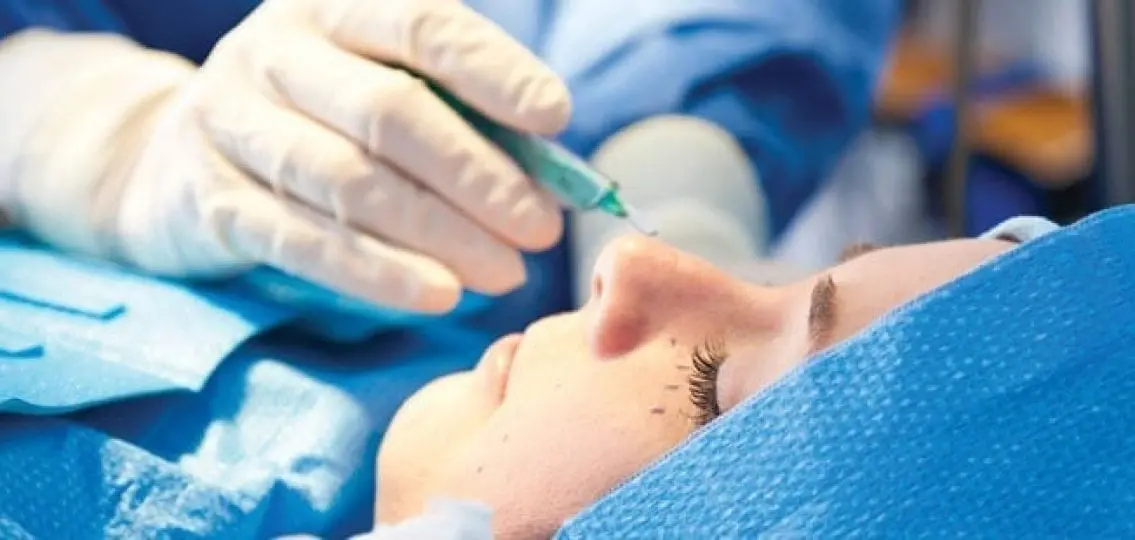Last year, more than 60,000 U.S. teenagers between the ages of 13 and 19 underwent plastic surgery. But what are the best practices when it comes to plastic surgery for teenagers? Your Teen asked Dr. Mark Foglietti, a plastic and reconstructive surgeon, for advice on what to consider when a teenager wants plastic surgery.
Q: What are some common procedures for teenagers?
Foglietti: Breast reduction surgery is a very common procedure. The ideal candidate for this type of procedure is a 17-year-old girl who is completely developed. Some girls may be developed fully at age 16, and if the symptomology is significant enough, that age may be acceptable.
Q: What are the symptoms?
Foglietti: The symptoms we look for are significant neck and back pain, bra strap grooves in the shoulders, specially sized supportive bras, rashes under the breasts, physical therapy for posture problems, and a medical history of the use of pain medications. When we see a young woman with these symptoms, breast reduction surgery can be medically appropriate. Insurers will generally dictate the amount of breast tissue that they will require to approve a breast reduction as medically necessary—usually between 300-500 grams of breast tissue.
Q: How do you evaluate whether breast reduction is appropriate?
Foglietti: It really varies from patient to patient. We look at each patient’s symptomology. We don’t make any evaluations based upon cup size because there is such a wide discrepancy in sizing among bra retailers. There can also be BMI (body mass index) considerations when a patient is considering breast reduction. If a patient is 5’3” and 250 pounds, then her BMI is going to be a significant factor in the amount of breast tissue she has. In those circumstances, we ask a patient to lose weight first. As a physician, you want them to be healthy first and foremost, but there can also be significant healing and wound complications if BMI is excessive.
Q: What about cosmetic breast procedures?
Foglietti: Patients must be at least 18 and have parental consent, but waiting until 21 is preferable. Teen cosmetic surgery can have psychological benefits. For example, a girl may have breast ptosis—sagging or drooping breasts—that may be hereditary, but can make her extremely self-conscious. Also, a young woman who has lost a considerable amount of weight may feel unhappy about her breasts. On the other side, sometimes we see girls who are absolutely flat-chested with no breast tissue whatsoever, and they are extremely self-conscious. We evaluate each patient individually.
Q: Are there cosmetic procedures for boys?
Foglietti: We also see young men with gynecomastia, the development of breast tissue. It is fairly common for boys age 12 to 14 to have some fatty breast tissue, but most will grow out of it as they mature. Although there are frequently obesity-related issues with this condition, occasionally we see a 17-year-old young man who is active and athletic and still has a B cup. He is subject to ridicule and psychological abuse which can be devastating, so in those cases, reduction procedures may be appropriate.
Q: What about nose jobs?
Foglietti: For rhinoplasty, we want the teenager to be fully grown so girls must be at least 17 and boys 18. Even if we reduce a bump, the nose can change shape if a teenager continues to grow.
Q: Do you ever say no?
Foglietti: Yes. For example, there are times when the parent wants the procedure but the child doesn’t. Then I am reluctant to operate. We also filter out those patients who are obsessive about details. A girl who brings in a photo of an actress and says, “I want her nose” is not a good candidate. I also don’t do computer imaging because it leads to unrealistic expectations. Instead, I show patients before and after photos of my own patients so they have a realistic idea of what to expect.
Q: Isn’t some body dissatisfaction normal at this age?
Foglietti: As physicians, part of our training is learning to evaluate the patient. I determine if the patient is focused on just one issue, or lots of different issues. A teen who requests multiple procedures is a red flag. If we have concerns, then we will ask whether they are seeing a therapist or taking anti-anxiety or anti-depressant medications. In those cases, we may ask the therapist for clearance before operating. If I have any concerns about a patient’s psychological well-being, I will not operate.




